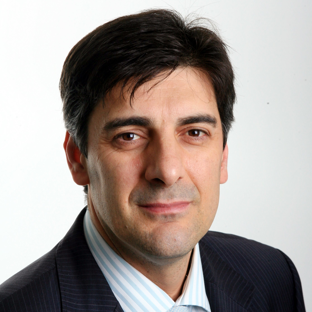As part of our fifth birthday celebrations, we’re presenting a unique headline debate with two sides, just one team – and nothing less than our future at stake.
The central question: where will we be as a society in five years’ time? Should we feel hopeful, or should we feel despair?
In four minute bursts, our panel of five prominent thinkers will each make an informed, impassioned case for optimism – and counter with an equally persuasive case against it.
It’s public debate as it should be: the kind that bucks binaries, marginalises myopia and penalises pigheadedness. And it’s a conversation with room for complexity, nuance and the grey areas in your grey matter.
Join our panellists as they pick holes in one another’s arguments and ideas. Then, the audience heads to a final tally: do you feel positive or negative about the future?
Speakers include feminist author Eva Cox, Robogals founder and former Young Australian of the Year Marita Cheng, political journalist and author George Megalogenis, Tasmanian Department of Justice secretary Simon Overland and medical anthropologist Gregory Phillips. Our host is writer and broadcaster Annabel Crabb.
Featuring

Marita Cheng
Marita Cheng founded Robogals Global in 2008 as a response to the traditionally low levels of participation by women in engineering and technology. In 2012, she was named Young Australian of the Year.
The daughter of Chinese parents, Marita was born and raised in far north Queensland and now studies at the University of Melbourne. She is dedicated to encouraging young women to pursue careers in engineering.
Robogals uses fun and educational activities to teach schoolgirls about engineering and the difference that engineers make to our lives. Already, Robogals has run robotics workshops for 25,000 girls across 300 schools in Australia and now has 27 chapters across Australia, the United Kingdom, the United States and Japan. For her work with Robogals, in October 2012 Marita was named one of 100 Women of Influence by the Australian Financial Review and Westpac.
Gregory Phillips
Gregory Phillips is from the Waanyi and Jaru peoples, and comes from Cloncurry and Mount Isa. He is a medical anthropologist, with thirty years’ experience in leading change in cultural safety, healing and decolonisation.
Gregory is Chief Executive Officer of ABSTARR Consulting, is a Professor of First People’s Health, and serves on several boards and committees, including chairing the Ebony Institute, the Cathy Freeman Foundation and AHPRA’s Aboriginal and Torres Strait Islander health strategy group.

Annabel Crabb
Annabel Crabb is a South Australian-born writer and television presenter who as a university student paid full price for Cosmo Cosmolino in 1992, breaking a solid habit of waiting for new books to arrive at the library. She completed a ...

Simon Overland
Simon started his current position as secretary for the Department of Justice in Tasmanian in July 2012. He was chief commissioner of Victoria Police from March 2009 until mid-2011.
Simon began his career in the Australian Federal Police, serving 19 years there before being appointed assistant commissioner (crime) with Victoria Police in 2003. He is credited with a prominent role in bringing an end to the Melbourne gangland murders and associated crime in Victoria.
Simon holds a Bachelor of Arts in Administration and Graduate Diploma in Legal Studies from the University of Canberra and a Bachelor of Laws with first class honours from the Australian National University. He has demonstrated a strong commitment to social justice throughout his career.

George Megalogenis
George Megalogenis is an author and journalist with more than three decades’ experience in the media. His book, The Australian Moment, won the 2013 Prime Minister’s Literary Award for Non-fiction and the 2012 Walkley ...
Eva Cox
Eva Cox has been an academic, political adviser, public servant, and runs a small research and policy consultancy. A sociologist by trade, she promotes ideas widely and eclectically in books, on line, in journals and other media.
Eva was born Eva Hauser in Vienna in 1938, and was soon declared stateless by Hitler so grew up as a refugee in England, till 1946, Italy and then Australia from age 10. She remembers being cross in kindergarten that boys were offered drums, and girls the tambourine or triangle. All these early experiences primed her political activism and made her an irrepressible advocate for making societies fairer.
She is an unabashed feminist and passionately promotes inclusive, diverse and equitable ways of living together. She was the ABC Boyer Lecturer (1995) on making societies more civil. Her 1996 book Leading Women explained why women who made a difference were usually labelled as difficult, a label she wears.
Eva has been recognised in various ways: Australian Humanist of the Year, a Distinguished Alumnus at UNSW and an Edna Grand Stirrer award. She also stirs through being a Professional Fellow of the Centre for Policy Development and as a Research Fellow at Jumbunna Indigenous House of Learning (UTS). She was recently honoured by being picked for a postage stamp as an Australian legend.
Her present project is to engage us in making the societies we live in more civil by setting good social goals via economic means, not gross growth.
